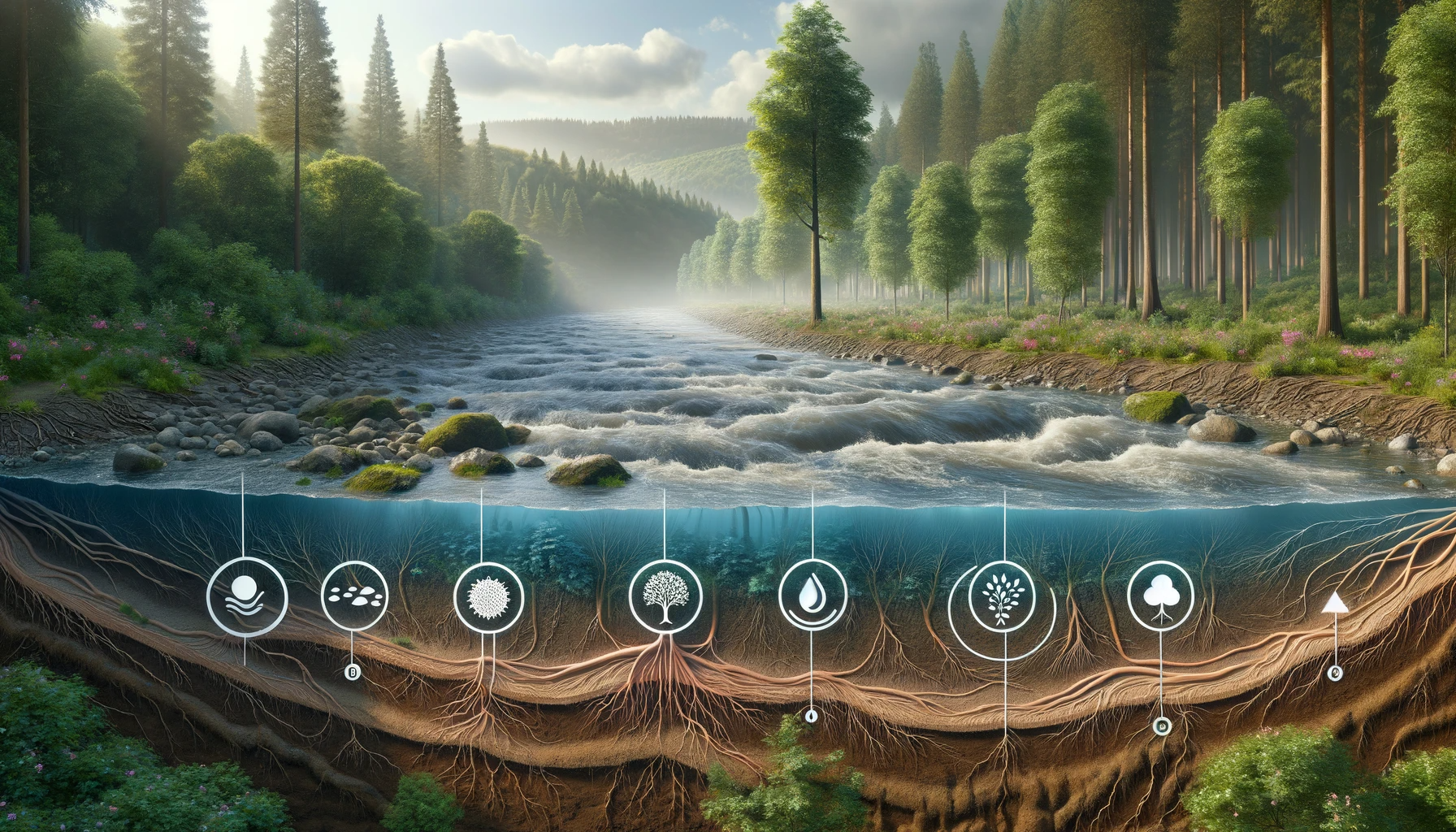"Understanding the Critical Zone's response to climate change is essential for safeguarding our water resources."
Climate Change Changes Water Quality in Earth’s Critical Zone
Posted: February 18, 2026

The Critical Zone (CZ) is a crucial section of Earth, stretching from the bottom of groundwater limits to the treetops. This zone is where the geosphere, hydrosphere, biosphere, and atmosphere converge, playing a vital role in sustaining life through various ecosystem services.
Among these services, maintaining high water quality is paramount. However, climate change poses a significant threat to the CZ’s ability to uphold this function.
Recent research has shown worrying trends in river water quality across the United States. For instance, a study by Li et al. (2022) on around 500 minimally impacted rivers indicated a potential decline in water quality in areas experiencing warmer and drier climates.
This study highlights the intricate relationship between CZ water inputs, subsurface reactions, and climate change. It also points out that other CZ attributes, like vegetation dynamics, are likely to react to climate shifts, impacting water quality both directly and indirectly.
The importance of studying water quality cannot be overstated.
Water is essential for life, and its quality directly affects the health of ecosystems and human communities. Polluted water can lead to a range of environmental and health problems, from habitat destruction to diseases. Therefore, understanding and mitigating the impacts of climate change on water quality is critical for ensuring a sustainable future.
This research delves into how bedrock and vegetation characteristics influence river water quality in the United States. Findings indicate that water quality is influenced by changes in water quantity, moderated by these characteristics.
Utilizing the CAMELS-Chem relational database, we analyze catchment attributes like leaf area index, root depth, bedrock type, and soil and subsurface properties, alongside stream discharge and surface water chemistry.
This data-driven approach aims to unravel how changes in water quantity affect water quality over time and space and to identify connections to specific catchment attributes. Research such as this is vital in understanding the CZ’s response to environmental disturbances like climate change and in developing strategies to protect our crucial water resources.
"Impact of changes in water availability on water quality: a data-driven investigation of Critical Zone subsurface and vegetation interactions" presented as part of “Next-Generation Mineralogy, Petrology, and Geochemistry: New Approaches to Harnessing the Multidimensionality of Complex Earth and Planetary Systems I” on December 15, 2023 during the American Geophysical Union Annual Fall Meeting
- Niara Hicks, University of Vermont
- Li Li, Pennsylvania State University Main Campus
- Bryn Stewart, Pennsylvania State University Main Campus
- Kristen Underwood, University of Vermont
- Ijaz UL HAQ, University of Vermont
- Dustin W Kincaid, University of Vermont
- Lauren Lowman, Wake Forest University
- James B Shanley, United States Geological Survey
- Erin Cedar Seybold, University of Kansas
- Bren Cable, University of Vermont
- Julia N Perdrial, University of Vermont

 Big Data
Big Data